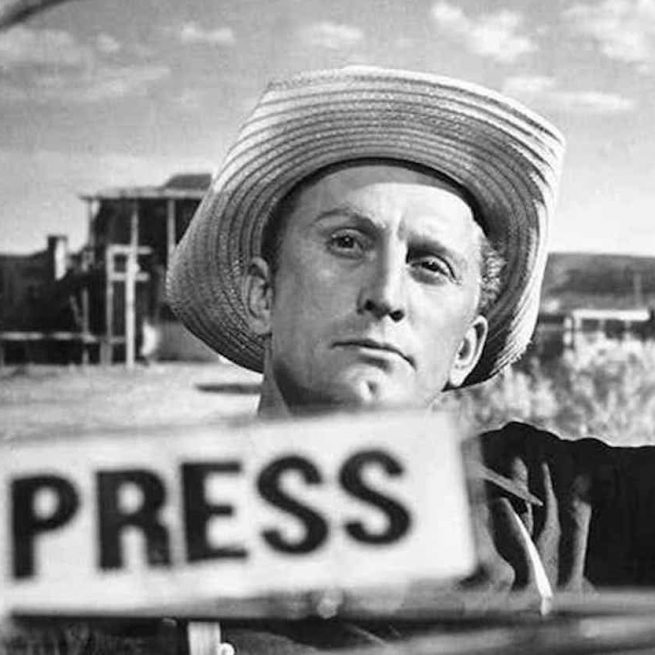The way people connect with the outside world and the way that we consume news and journalism has experienced a considerable shift during this unprecedented time. At the same time, journalists and media outlets have suffered the impact of the pandemic and are trying to find new models and strategies to fulfil their mission. In order to picture the evolution, changes and risks of this period, Blasting News’ editorial team spoke with journalists and media theorists about the impact of coronavirus on the media industry. From Sally Lehrman - the Chief executive and founder of the Trust Project - to Richard Gingras - Vice President of News at Google - five media theorists depict the future of media, its challenges and our role in this evolution through a series of exclusive interviews.
Jeff Jarvis: the next phase of the internet? A listening net
Jeff Jarvis, a media critic, and professor at the Craig Newmark Graduate School of Journalism at City University of New York, says that “the internet is allowing society to relearn how to hold a conversation with itself, no longer with the gatekeepers of big mass media.” For Jarvis, journalism should rethink its role in society and see itself “not as a factory making a product called content,” but “as a service that helps people improve their lives and their communities.” “The internet today has been built for speaking, not listening; so what excites me about the next phase of the net is to build a listening net,” says Jarvis.
“The opportunity, I think, is for us to let people talk, because they're going to anyway, but then add value to that conversation.”
Douglas Rushkoff: We need a net that encourages freedom
Douglas Rushkoff, professor of media studies at the City University of New York's Queens College, claims that social media have “encouraged reductive branding that polarizes discussions” and “breaks everybody down into their own little category.” In response to this, Rushkoff doesn’t lose faith in journalism as a way to open people’s minds and defends that “journalism schools are needed, because there are billions of dollars being spent on misinformation and disinformation.” Rushkoff calls on us, citizens of the world, to come together as “Team Human” to find a blooming way of living by “engaging with people in real life and living locally rather than internationally.”
Claire Wardle: with so much information people can't tell the difference between true and false
The @eugeneweekly takes a look at the upcoming Hearst Demystifying Media Series: Disinformation in the US 2020 Presidential Election. Dr. Claire Wardle (@cward1e) of @firstdraftnews will present this FREE lecture on Mon. Jan 27 at 6:30 pm. https://t.co/jNKuJdIgp4 pic.twitter.com/5X1U5E8ei6
— UO Journalism & Comm (@UOsojc) January 24, 2020For Claire Wardle, co-founder and director of First Draft - a nonprofit active in verification - “the infodemic is like a pandemic, there is so much information that people can't tell the difference between true and false.” She explains to us that if fake news is shared it is because people have no sense of the full picture around the pandemic and are looking for answers.
It’s the journalists’ role “to fill that data void”, she says. Wardle explains to us how to distinguish between false and true news, and how to navigate the COVID infodemic. She also talks about the 2020 United States presidential elections - stating that “we're going to see a lot of misinformation in the next coming days.” “The outlook will be really bleak,” she adds.
Sally Lehrman: Real journalism is designed to serve the public
#AEJMC2019 Before her panel, Building Trust in an Age of Disinformation (Sheraton Centre Hotel - Grant Ballroom East, 10 a.m.), Sally Lehrman ( @journethics , @_trustproject ) stopped by to say hello and to chat about her book, Reporting Inequality (https://t.co/DS6uKPB9z2) . pic.twitter.com/O3Hh9Vc30u
— Media, Cultural and Communication Studies (@Routledge_MandC) August 8, 2019
Sally Lehrman - an award-winning journalist, visiting Science and Justice Professor at UC-Santa Cruz in California, and the Chief Executive and Founder of the Trust Project - tells us more about the need for journalism to be different.
She highlights the fact that the lockdown has confined us to a “family bubble” which we need to break out of. To her, “journalism is about helping people understand what is going on in their world so they can make their own decisions and not be pushed in one direction or another. We are the only kind of source of information that is built around the public interest.” She also talks about the violence that journalists suffer from and hopes that the Trust Project - a consortium of top news companies from different countries implementing transparency standards to help assess the quality and credibility of journalism - will “make the public more aware of what defines journalism that is responsible and has integrity behind it.”
Richard Gingras: Journalism has to teach citizens how to think, not what to think
Just left Newsgeist Cartagena, our weekend long "unconference" for Latin America. Journalists, publishers, designers, data scientists, entrepreneurs discussing everything from trust to business models to new story formats to the role of search engines. Thoughtful. Inspiring. pic.twitter.com/eZcaI3npNM
— Richard Gingras (@richardgingras) September 23, 2019
Richard Gingras, Vice President of News at Google, analyzes the most important challenges we face today, including the future of news, how tech can help foster a better media landscape, how the pandemic has changed information and how Google is working to create a more inclusive and healthier information ecosystem worldwide.
And despite the pandemic and the struggle of media outlets, Gingras is optimistic about the future of media and journalism, stressing that the key “is to give citizens the information they need to be informed citizens.”

